04:42
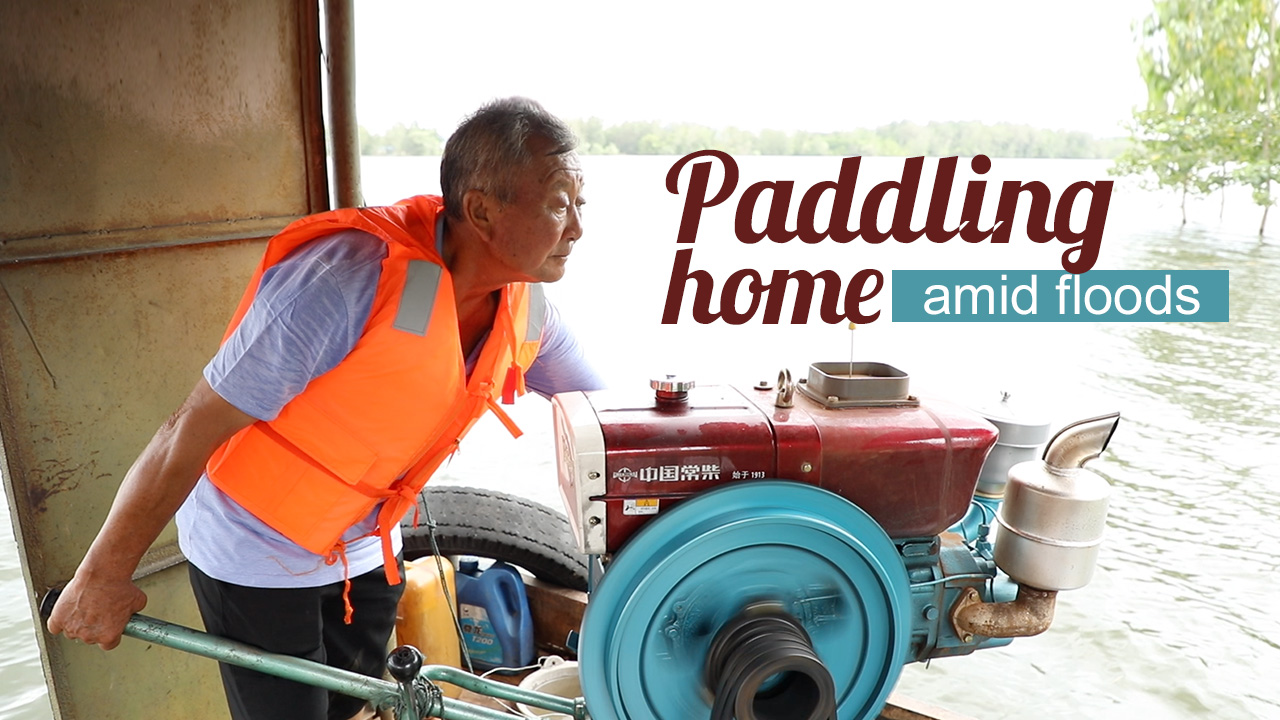
70-year-old Wang Qigan hadn't been behind the wheel for three years. But the floodwater forced him to take out his old ferry boat again as the evacuation order came.
On July 13, Peiwen Village of Anqing City in east China's Anhui Province was like a giant bathtub that was filled to the brim. Situated along the Yangtze River, the village saw waters spilling in since July 10, flooding roads and farmlands. In the evening, a dyke not far from the village broke. Quickly, flood water submerged the first floor of buildings.
A native of Peiwen Village, Wang has seen floods before, but not this violent. The only two roads that connect the village with the outside world were inundated with water and could not be seen. More than 1,000 households, around 5,000 residents, in the village counted on Wang to evacuate them.
The 70-year-old started his job as a helmsman in the 1980s, driving a small ferry boat to transport villagers to and from Peiwen before roads were constructed. On his ferry, one frequently saw children who were going to school in the nearby town and old residents who were coming back from a medical checkup in the local hospital. He worked from early morning to late night and did not stop for a single day until he became too old to steer the ferry three years ago.
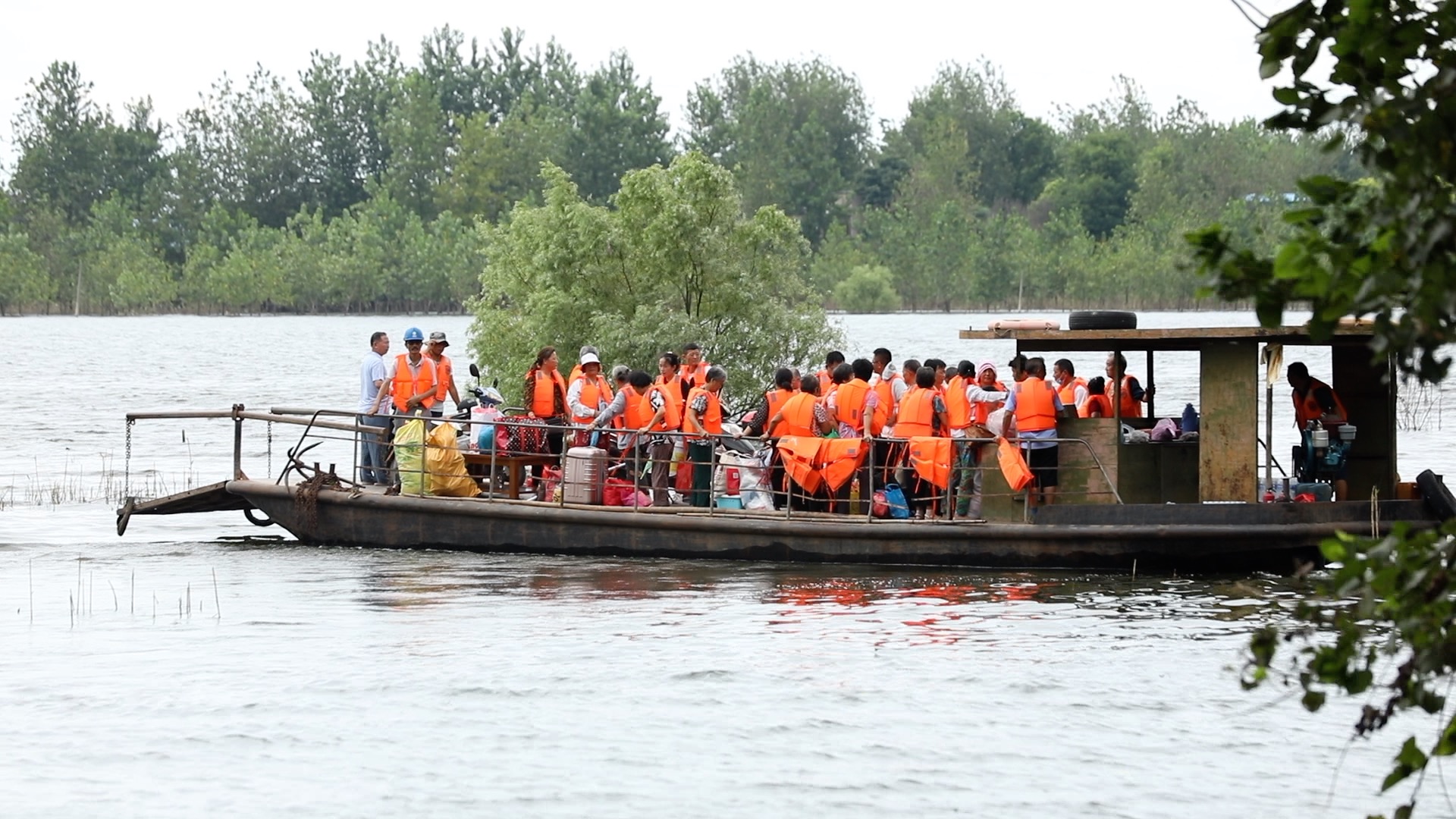
Wang steers the ferry as flood victims are finally allowed to go back home. Qi Jianqiang/CGTN
Wang steers the ferry as flood victims are finally allowed to go back home. Qi Jianqiang/CGTN
During his 40 years of navigating on the water, Wang never had a single accident. But this time was different. His small ferry, which usually hosts no more than 30 people, was now fully packed, most with bags of clothing, bedding and items such as electric fans and thermos flasks.
"People were rushing to get on the boat … because this was the only way to get out that day," said Wang. "It was total chaos."
That night, he worked until 3 a.m., after all 5,000 residents were evacuated and soldiers and flood control equipment were brought into the village. He slept for three hours, woke up to clean and check his ferry at around 6 a.m. and started transporting soldiers and local government officials from the port to the submerged village.
The flood this year was the worst in a decade, said Wang Weifu, former head of the Peiwen Village. From July 11 to 14, the water level increased by at least one foot per day, resulting in breaches in three nearby dykes. Nationwide, heavy rains affected 27 of the country's 31 provinces, autonomous regions and municipalities, leaving more than three million displaced to move in with relatives or shelter at local schools.

Trees were still submerged by flood water in Peiwen Village. Qi Jianqiang/CGTN
Trees were still submerged by flood water in Peiwen Village. Qi Jianqiang/CGTN
Just like many rural villages in China, Peiwen saw its young residents leaving the village en masse. Most young people left their homes to take up jobs in factories or open up small businesses in more economically advanced regions. Some went to schools in other cities and never came back.
Wang's four sons and two daughters were among them. After Wang's retirement, no one in the family wanted to take over the ferry and his sons brought up the idea of selling the boat. Income from steering the ferry was around 300 yuan per month, too low to be considered attractive for young people.
On the night of the evacuation, Wang Weimin, the second-oldest son in the family, was also on board. The pandemic had left his food stall business in Xi'an City in central China's Shaanxi Province half dead and as he was stranded at home, he came to see that his 70-year-old father was now too old to steer the wheel.
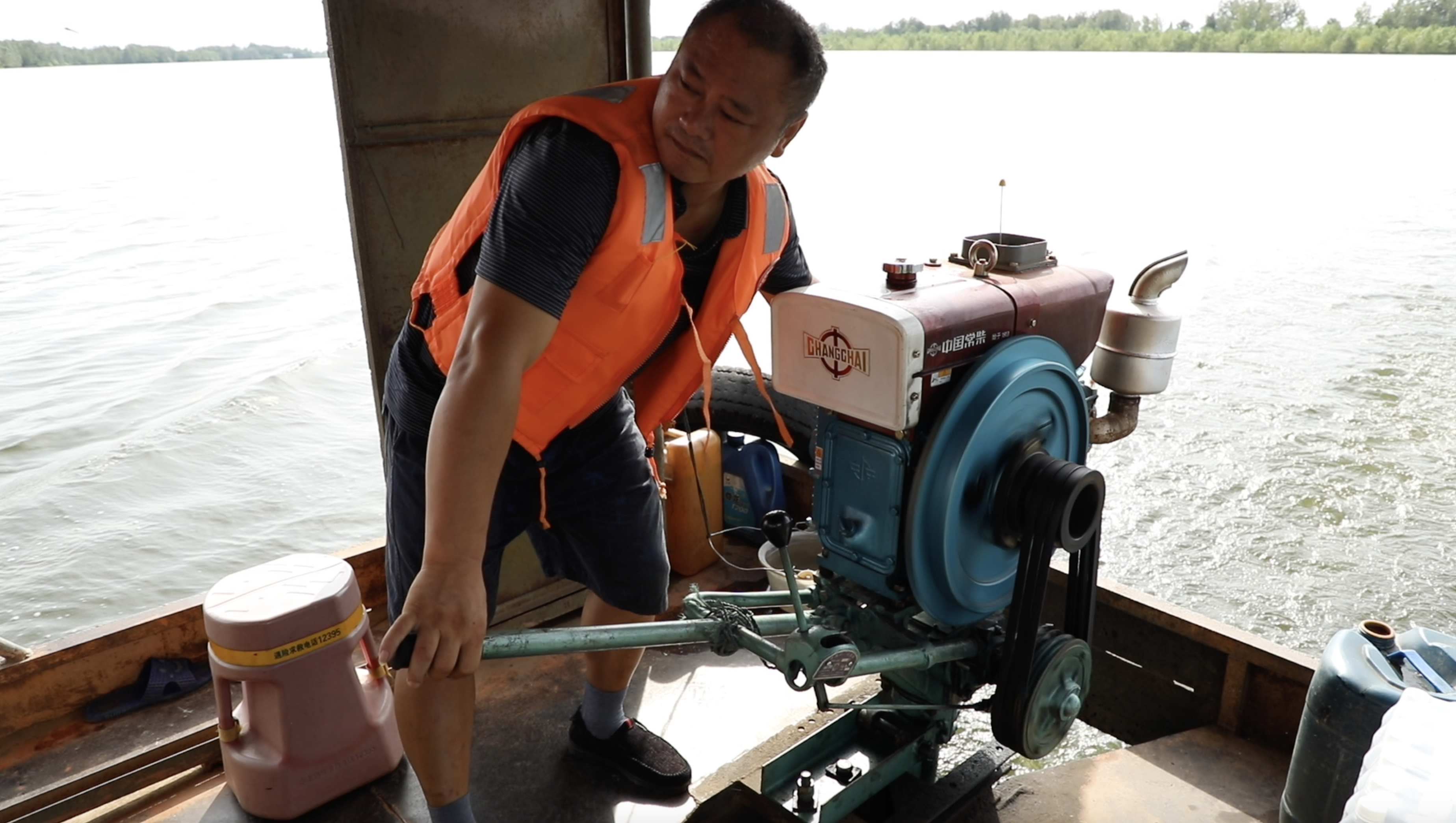
Wang Weimin takes charge of the steering wheel. Qi Jianqiang/CGTN
Wang Weimin takes charge of the steering wheel. Qi Jianqiang/CGTN
He noticed several times that his father found it hard to move the boat control lever. One day, he observed a deep cut on his father's hand. A few days into the evacuation, with high water marks exceeding warning levels, he offered to take over the steering wheel.
"The ferry is the lifeline of the village in the midst of the flood," said Wang, the second-oldest son in the family. His wife and his father, helped maintain order and security on board as evacuation continued.
The villagers incurred huge economic losses. Thousands of hectares of farmland were destroyed. Pigs, chicken and ducks that were raised for sale were now left abandoned as villagers evacuated. Knowing the financial hardship everyone is going through since the flood hit, the 70-year-old does not charge passengers.
"I am from Peiwen Village, and it is my duty to protect the village when crisis strikes," he said.
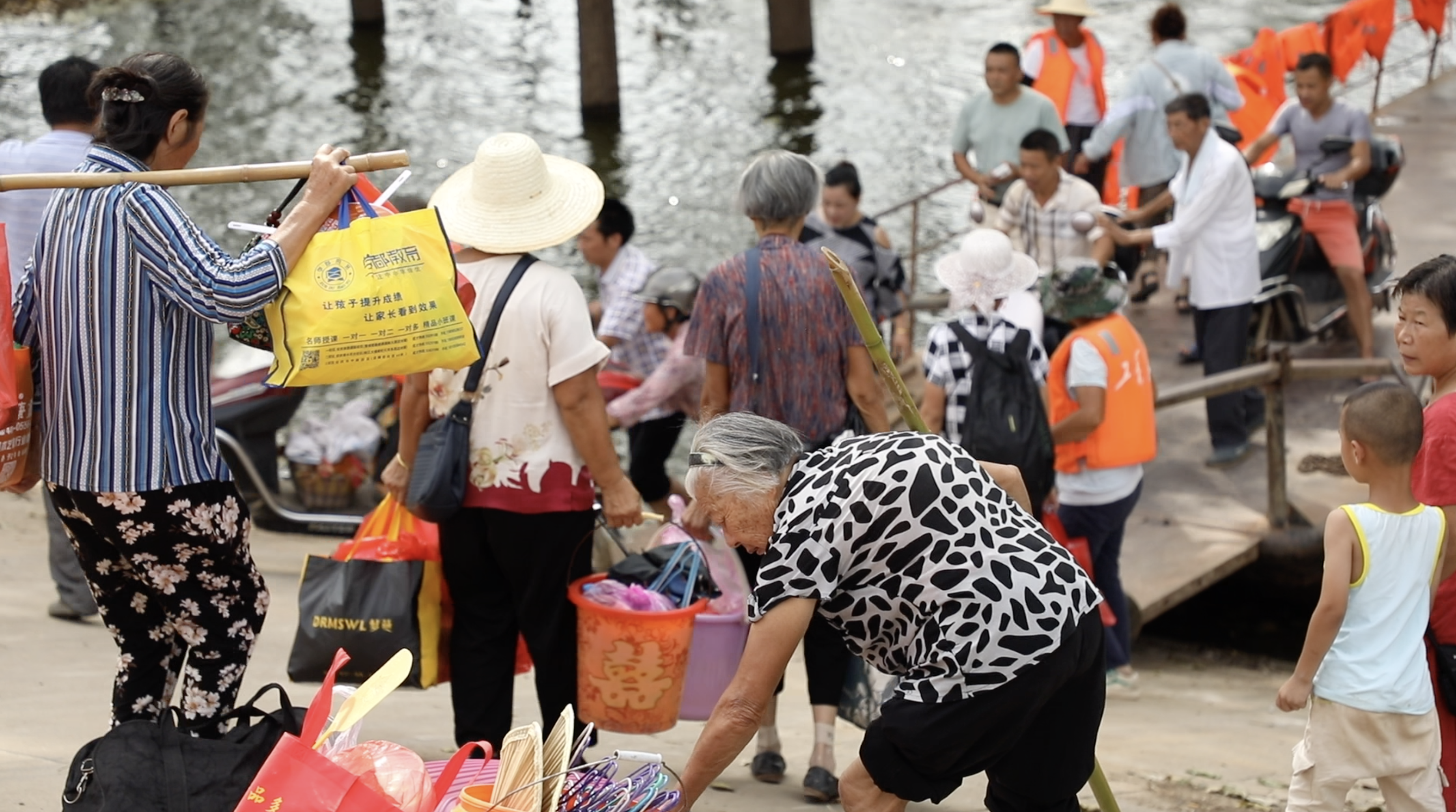
Residents wait in line to get on the ferry. Qi Jianqiang/CGTN
Residents wait in line to get on the ferry. Qi Jianqiang/CGTN
But he was not in a good financial situation either. He sold his land in exchange for the ferry in the 1980s, and ever since he stopped steering the ferry three years ago, he lost his source of income.
His age wasn't the only factor behind his retirement. In the past few decades, Peiwen Village has been through rapid urbanization. Cement roads that connect villages were constructed. Motorcycles and automobiles were commonplace. When most people could ride on motorcycles or drive to cross to the other side, few opted for the ferry.
But whenever the flood came, his ferry would come to play an indispensable role. During the most catastrophic 1998 floods, the ferry carried soldiers to erect sandbag flood barriers along the river. Amid the 2016 floods, government officials relied on his ferry to inspect the flood control work along the river.
"Whenever the flood came, my ferry was here," said Wang.
Now as the flood situation was under control, most villages in Anhui Province were working on post-crisis reconstruction. On August 5, almost one month after the flood first hit, villagers of Peiwen were allowed to go back home.
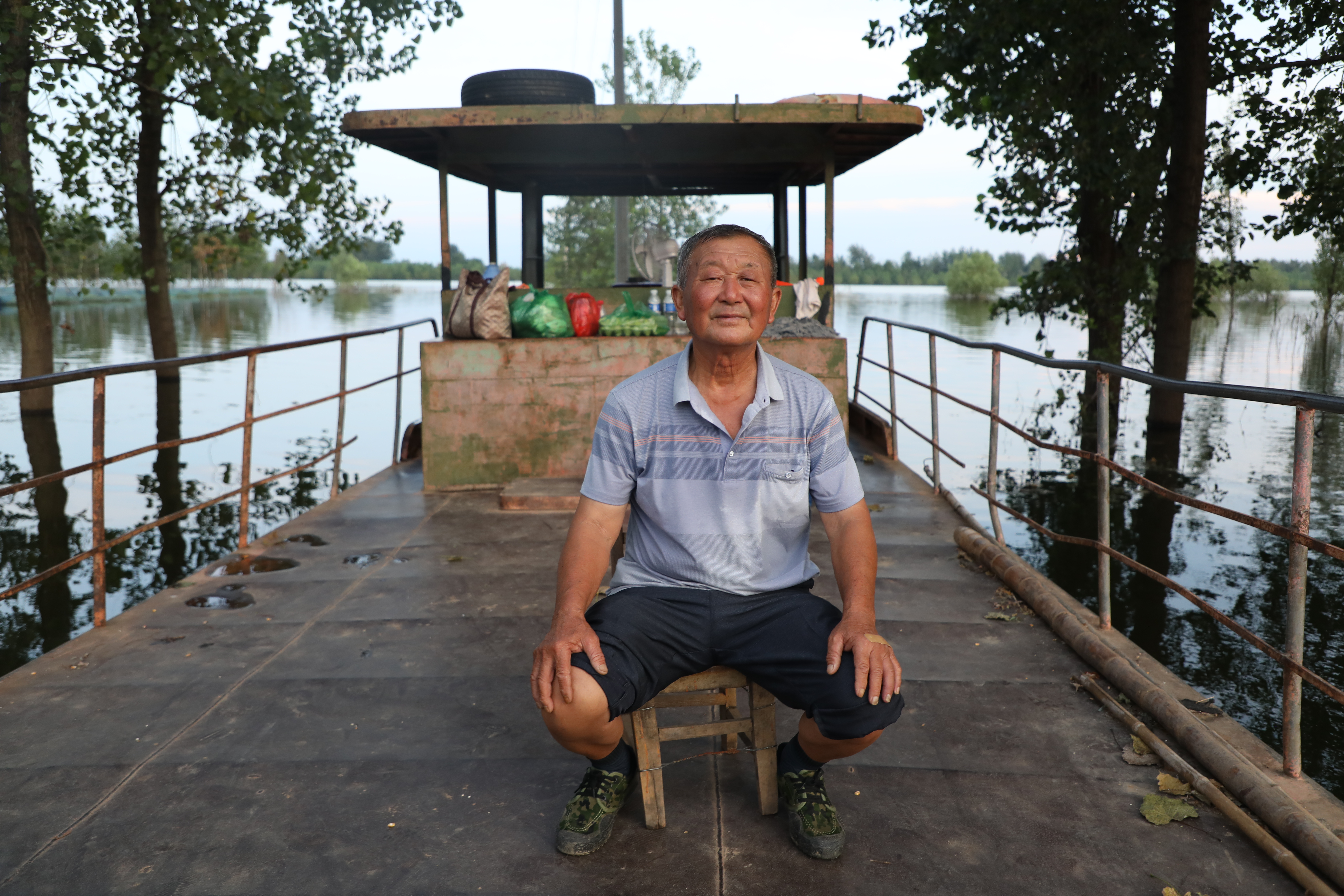
Wang and his old ferry. Qi Jianqiang/CGTN
Wang and his old ferry. Qi Jianqiang/CGTN
They waited at the port in the early morning. Floodwater which submerged the ground floor of houses has slowly retreated to below the warning level. Across the village, rice paddies were still under water. There was still a power outage.
But they were eager to cross the river. And just like every other time, Wang and his ferry would send them back home.
Now Wang's biggest wish is that once the flood is over, his ferry can be preserved well. "Though society has progressed … for the old and the feeble, the ferry is still their most reliable way to travel to the nearest town," said Wang.
"Many people want me to keep rowing … but I know I am getting old."
Videographer: Qi Jianqiang
Video editor: Qi Jianqiang
Writer: Yu Jing
Cover image: Jia Jieqiong